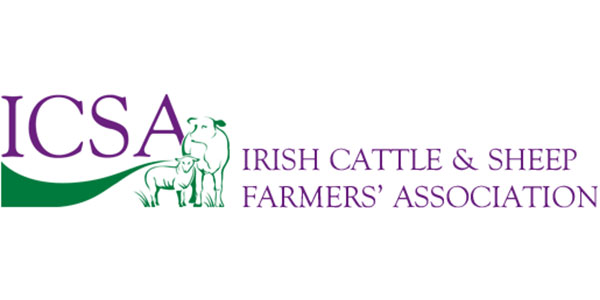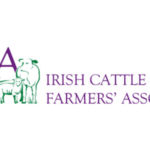Joint Committee on Social Protection, Community and Rural Development and the Islands – 17 April 2024
Introduction & Overview
Thank you, chairman, members of the committee.
As representatives of the Irish Cattle and Sheep Farmers Association, we appreciate the opportunity to address the Committee today regarding the profound impact of means testing on Farm Assist and other crucial Social Welfare schemes. Our submission seeks to shed light on the unique challenges faced by farmers in rural communities across Ireland, highlighting the necessity for fair and equitable access to support systems.
Farmers are the backbone of our nation’s agricultural sector, working tirelessly to provide for their families and contribute to the vitality of rural economies. However, they often contend with unpredictable market fluctuations, adverse weather conditions, and rising input costs, which can significantly affect their livelihoods. In such precarious circumstances, social welfare programs like Farm Assist serve as vital safety nets, providing essential financial assistance to those in need.
The current means testing mechanisms, while designed with the intention of targeting support to those most in need, often fail to adequately account for the unique complexities of agricultural income and expenses. As a result, many hardworking farmers find themselves unjustly excluded or inadequately supported by these schemes, despite facing genuine financial hardship. It is our view, the current means testing process poses significant barriers to accessing this essential support, affecting farmers’ well-being, and creating uncertainties about their future financial security.
The Department of Social Protection’s data shows a downward trend in the recipients of Farm Assist. This decline seems paradoxical, especially given the significant financial challenges all farming sectors are grappling with, and considering the ongoing challenges stemming from Brexit, COVID-19, and the Russian invasion of Ukraine. We in ICSA contend that the decline may be attributed to the complex and burdensome application process.
Means Testing Process:
To qualify for Farm Assist, farmers must undergo a rigorous means testing process conducted by the Department of Social Protection. This process involves an exhaustive examination of all sources of income, including farm income, off-farm self-employment, farm schemes payments, income from leasing of land, and income from employment. The assessment also considers capital assets, maintenance payments, and other financial factors. The complex nature of the process creates several barriers for farm families wising to access Farm Assist and other Social Welfare Schemes.
These barriers include:
1. Complexity of Means Testing: The comprehensive examination of all sources of income can be daunting for all farmers, but especially those with limited financial literacy or resources to navigate the application process effectively.
2. Variability in Farm Income: Farmers often experience fluctuations in their income from year to year due to factors beyond their control, such as weather conditions, market prices, and policy changes. The reliance on previous year’s earnings to assess future income may not accurately reflect their current financial situation, leading to potential underestimation of eligibility for Farm Assist.
3. Inclusion of Spouse/Civil Partner/Cohabitant Income in Assessment of Needs: In farming households, the income earned by one spouse may be used to support the entire family, including farm expenses. Therefore, including the spouse’s income could inaccurately inflate the household’s financial status, making it seem like the farm doesn’t need assistance when, in reality, it does. Even if a spouse has a stable income from a non-farm job, it may not be sufficient to offset the unpredictability of farm income.
4. Impact on Pension Entitlements: The means testing process for Farm Assist may inadvertently affect farmers’ pension entitlements, particularly concerning the assessment of income from self-employment and other sources. This can create disincentives for farmers to access social protection payments, fearing negative consequences for their retirement benefits in the long term.
5. Documentation Requirements: The documentation required for the means test, including financial records, farm accounts, and proof of income, places a huge administrative burden on farmers. Gathering and providing this information can be time-consuming and may pose challenges for those with limited access to accounting or administrative support.
6. Lengthy Application Process: Farmers are put off by the length of time it may take to have their applications processed. When needs are immediate, farmers need immediate assistance, not endless bureaucracy.
Suggested Changes to the Current System:
1. Eligibility Extended Passed Pension Age: Available data indicates a growing proportion of older farmers receiving Farm Assist over time. Farmers beyond pension age are facing financial challenges and may require support to sustain their livelihoods. As farmers age, they may encounter difficulties in maintaining productivity, adapting to technological advancements, and managing physical labour. Increasing the age eligibility for Farm Assist can provide them with the necessary financial assistance to cope with these challenges and continue farming.
2. Simplify Means Testing Procedures: Streamlining the means testing process for Farm Assist by reducing unnecessary complexities and paperwork would make it more accessible to farmers.
3. Introduction of Interim Payments: The lengthy application processrequires thefacilitation ofinterim payments to tide farmers over while their applications are being assessed.
4. Account for Income Variability: Recognising the inherent variability in farm income, the means test should adopt a more flexible approach that considers short-term fluctuations while ensuring long-term sustainability. Adjustments should be made to account for exceptional circumstances or unforeseen events impacting farmers’ financial stability. To this end the option of a multi-year income test assessment should be considered.
5. Capital Assessment Disregard: The current disregard of €20,000 needs to be increased in line with other social protection schemes.
6. Depreciation of Farm Equipment: Depreciation for Farm Assist should be increased to a standard rate of 10%
7. Protect Pension Entitlements: Measures should be implemented to safeguard farmers’ pension entitlements while accessing social protection payments like Farm Assist. Ensuring that means testing does not negatively impact future retirement benefits would alleviate concerns and encourage more farmers to avail of the support they need. ICSA recommends that recipients of Farm Assist should receive credited social insurance contributions for pension purposes.
8. Provision of Enhanced Support Services: Providing tailored support services, including financial counselling and assistance with documentation, would facilitate the application process for farmers.
Conclusion:
The cumbersome bureaucracy and stringent eligibility criteria associated with means testing create unnecessary barriers for farmers seeking assistance, exacerbating the already daunting challenges they face. Such barriers not only undermine the effectiveness of social welfare programs but also perpetuate inequality and deepen the divide between rural and urban communities.
In light of these concerns, we urge the Committee to carefully consider the implications of current means testing practices on farmers and their families. Reforming means testing for Farm Assist and other social welfare schemes is imperative to ensure fair and equitable support for farmers and rural communities. We urge the Committee to carefully consider these proposals and work towards implementing reforms that reflect the realities of agricultural life and promote sustainable development in rural Ireland.
Thank you for your attention to this important matter. We look forward to engaging in constructive dialogue with the Committee to achieve positive outcomes for Irish farmers and rural communities alike.
Thank you.




